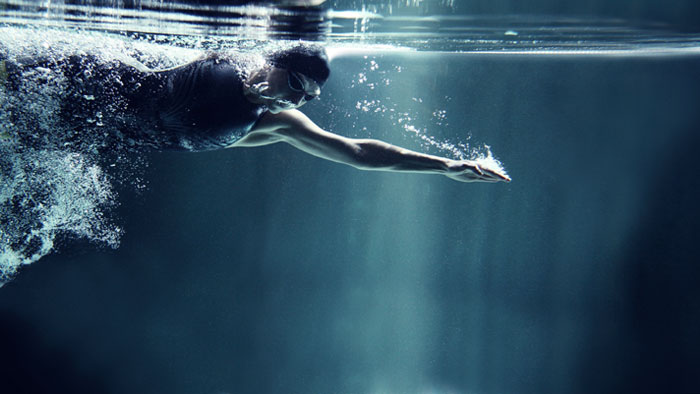Preface: I am a coach, not a healthcare professional. I am providing guidance on what I deem to be an important topic to the best of my ability, however if you have any questions or concerns, you should visit a registered optometrist who will be able to provide you with advice.
Wearing contact lenses while swimming is generally considered to be risky by most healthcare professionals, as water is easily trapped between the lens and your eye, along with any bacteria that may be present in the water. And if there’s one environment that bacteria love, it’s a warm, moist environment, such as the one between your eyeball and contact lens.
Now think about the kind of bacteria which can be found in a swimming pool, especially those where swimming lessons with young children take place. If bacteria from undesirable sources get trapped between your contact lens and your eyeball, they have a good chance of multiplying and causing an infection.
When I worked as a swimming teacher, I started by wearing my contact lenses to make sure I could keep an eye on my class. Despite my best efforts to avoid water getting in my eyes, after a couple of cases of conjunctivitis (pink eye) I decided to draw the line when it came to wearing contact lenses around water. I was lucky that I only received minor infections, but you are also at risk of more serious conditions such as corneal ulcers and acanthamoeba keratitis (google at your own risk) which can result in sight loss.
I’m fortunate that the prescription in my right eye is fairly mild so I can swim without lenses relatively confidently, but some of my athletes tell me they can’t imagine swimming without their contacts as they wouldn’t be able to see potential hazards, so a solution is necessary to both safeguard ourselves against sight loss, and injury while swimming. Here are a few options to consider:
Strict Goggle Etiquette
If you really feel the need to wear contact lenses while swimming, you can get around it by being vigilant with your goggles. That means making sure there is a good seal on them before you get in the water, and not removing or adjusting them until you finish your post-swim shower. If you’re anything like me, this will be difficult, as it’s borderline impossible to avoid goggle fog, not to mention the pressure on your eye sockets.
Use and Toss
A less risky strategy is to swim in your contacts and bin them at the end of the session regardless of whether water made its way into the goggles or not. This is far from a bulletproof solution, but offers a degree of protection for those who just can’t picture themselves swimming without contact lenses. A good rule of thumb is that if If you can “feel” your lenses after a swim, the chances are some water got into them and you should remove and dispose of them immediately.
Prescription Goggles
The preferred option is to remove the contact lenses from the equation altogether by purchasing a pair of prescription goggles. These vary wildly in quality, and it’s difficult to get the prescription spot-on due to the limitations of the manufacturing process, but they are the ideal solution. Prescription goggles allow you to see who’s in front of you, read what’s on the whiteboard, and to check the pool clock for your splits. Getting a pair of goggles that fits properly is hard enough at the best of times, so when the range is vastly reduced, it can be difficult to find a well-fitting pair. My recommendation is to start with performance brands rather than leisure brands, as they tend to have a better seal.
Open Water Swimming With Contact Lenses
When swimming in open water, we’re not only worried about seeing the wall or the line. Waves, other swimmers, and low sun all pose extra challenges, not to mention the need to sight buoys. With so many reasons to see clearly, it’s a shame that open water isn’t more contact-friendly—but anything can fall into freshwater and decompose, posing a number of threats to our eyesight and general health.
Again, I’ve found that prescription goggles are the best bet, but if you’re planning to keep your goggles on for the duration of your workout, you may be able to get away with wearing your contacts. Again, if you can “feel” them after your swim, they’ve most likely been contaminated.
Race Day
On race day itself you need to think carefully about how you’re going to work around the issue. Is your eyesight good enough to get by as long as you stay in the main swim pack? Will you be putting on glasses or contacts in T1? How long is your event? Do you have spare lenses/glasses in T1? Will you need to keep your goggles on as you run up to transition? These are all pieces of the puzzle for you to put together to come up with a solution based on your individual circumstances. If in doubt, ask an optician for their recommendation.
Your eyesight is arguably the most important of the human senses to preserve, and putting yourself at risk for the sake of a minor inconvenience or small expense isn’t worth the risk. As such I recommend that all of my short-sighted athletes avoid swimming with contact lenses wherever possible. You will no doubt meet swimmers who will tell you they have been swimming in contacts for years and never had any problems, but with the stakes so high, it makes sense to take precautions.










